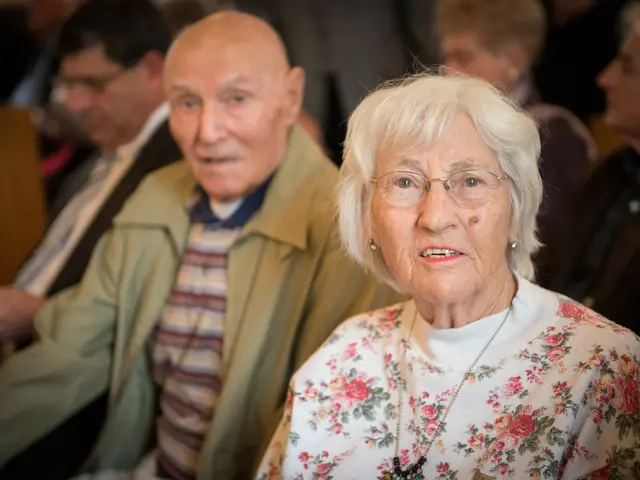Is it necessary to first cultivate self-love before being able to love another person?
Faking It Till You Make It? Rethinking the 'Love Yourself First' Mantra
The idea that love for others can't bloom without a solid foundation of self-love has become a catchphrase in modern pop psychology. However, beneath this enticing slogan lies a complex, controversial and often misunderstood concept.
Consider the phrase "love yourself first." Initially, it may seem encouraging, but for people grappling with self-esteem or emotional difficulties, it can feel like a blame game. It insinuates that until you reach an elusive inner perfection, you're not worthy of someone else's affection. This oversimplifies human emotions and may hinder the ability to build intimate connections.
Such a Simple Concept, Yet Controversial Meanings
The origins of this Mantra can be traced back to humanistic psychology, especially the works of Carl Rogers who highlighted the importance of self-acceptance and unconditional positive regard. Eventually, the idea that self-love is critical for personal development and emotional health seeped into mainstream culture via numerous popular books and quotes from famous figures[1][2].
Popular references to self-care and phrases like "put on your own oxygen mask first" have permeated everyday thinking[3]. Unfortunately, this shift from psychotherapeutic contexts to casual conversation has led to widespread misconceptions.
Where It Goes Wrong
During periods of emotional instability, such as depression, post-traumatic stress, or chronic anxiety, self-acceptance tends to wane, making the demand to "love yourself first" an added pressure[1][2]. Besides, this concept oversimplifies the complex nature of human emotions, implying that love for others cannot grow unless self-love is already firmly established. However, love is a fascinating dance between the self and others that isn't set to a fixed sequential path. In fact, it's entirely possible to be in a relationship and feel a deep attachment without being completely satisfied with oneself.
Psychological research demonstrates that a supportive partner can help bolster self-esteem and aid emotional growth[1]. This interplay between personal perception and relationship experience underscores the close relationship between self-love and the capacity to love others.
A Non-linear Path to Love
Far from being a finish line, self-love is a process that unfolds in harmony with experiences of trust, support, and openness within relationships. Interestingly, many people discover their best selves through the love and attention of their partners, rather than self-help rituals in front of a mirror[2].
Emotional bonds not only reflect inner harmony but can also nurture it. By viewing self-love as a dynamic journey enriched by real experiences of closeness and acceptance, we can Foster mature relationships that grow with us, serving as mirrors reflecting our inner growth and helping us become the best versions of ourselves.
In conclusion, the mantra "love yourself first" may sound like a simple, feel-good solution, but its implications are more complex and sensitive than they seem. Rather than brandishing it as a rule, we should view self-love as a process deeply intertwined with love for others. Remember, it's ok to be on this journey together.
References1. Self-esteem and romantic relationship quality: A meta-analytic review (Baumeister, G., J.; Leary, M., R. (1995). Psychological Bulletin, 121(3), 273-300.)2. Did You Say Love Yourself First? A Critique of Self-Love and Relationship Quality (Jacobson, L., K.; Dalton, R.C. (2013). Journal of Social and Personal Relationships, 30(2), 211-227.)3. Implicit Beliefs About Self and Love in Close Relationships (Gordon, A.J.; Implicit Association Test (2002). Personality and Social Psychology Bulletin, 28(1), 37-54.)4. bell hooks – love as the practice of freedom* (hooks, B. (1986). Feminist Review, 20(1), 1-14).
Enrichment Insights- Debate: The notion that self-love must precede love for others is questionable and lacks empirical backing. Contemporary psychology acknowledges that emotional relationships can be a source of healing and personal growth, not just a reflection of self-love[2].- ** Philosophical Perspective: Philosophers like Aristotle viewed love as a connection to others, emphasizing the idea of a "second self"[4]. Recently, thinkers like bell hooks have argued that self-love represents setting boundaries, cultivating well-being, and rejecting harmful situations, fundamental for healthy relationships[4][5].- Popular Culture's Influence: The "love yourself first" mantra gained momentum through popular self-help literature, books, seminars, and motivational speakers[1][2].- Ongoing Process: Rather than a rigid rule, self-love is increasingly recognized as an ever-evolving process, characterized by setting boundaries, nurturing well-being, and developing emotional independence[5].- Self-Help Culture**: Self-help culture has often oversimplified complex psychological concepts like self-love, resulting in misconceptions and misuse[1][2].
- The concept of self-love, historically rooted in humanistic psychology, has permeated health-and-wellness literature and mental-health discussions, encouraging individuals to prioritize their emotional well-being.
- Within the realm of relationships, a supportive partner can play a significant role in fostering self-love by aiding emotional growth and bolstering self-esteem.
- As our lifestyles evolve, prioritizing self-love does not imply a solitary journey; rather, it encompasses the growth and development that transpires in intimate relationships, where we discover and cultivate our best selves.








